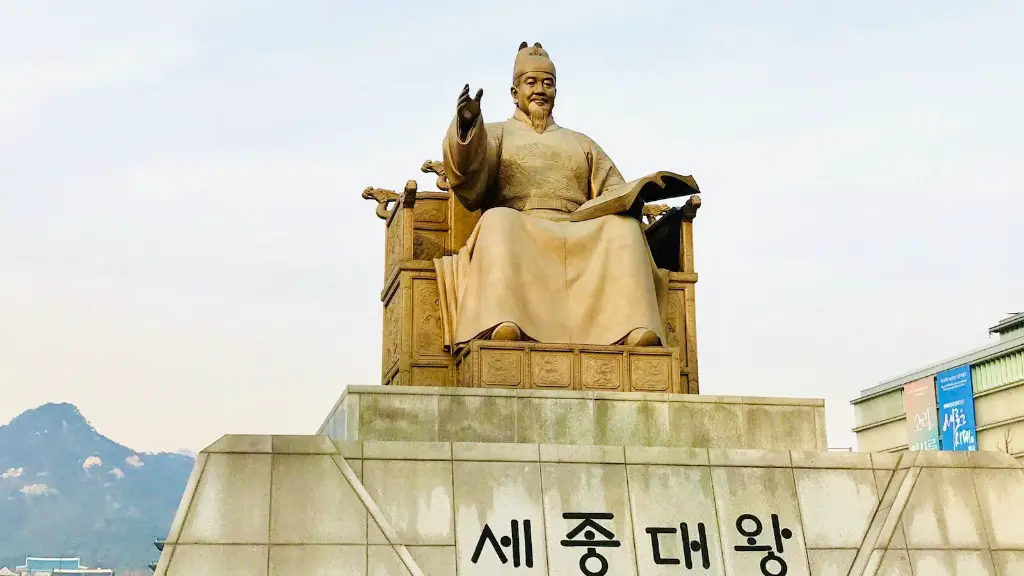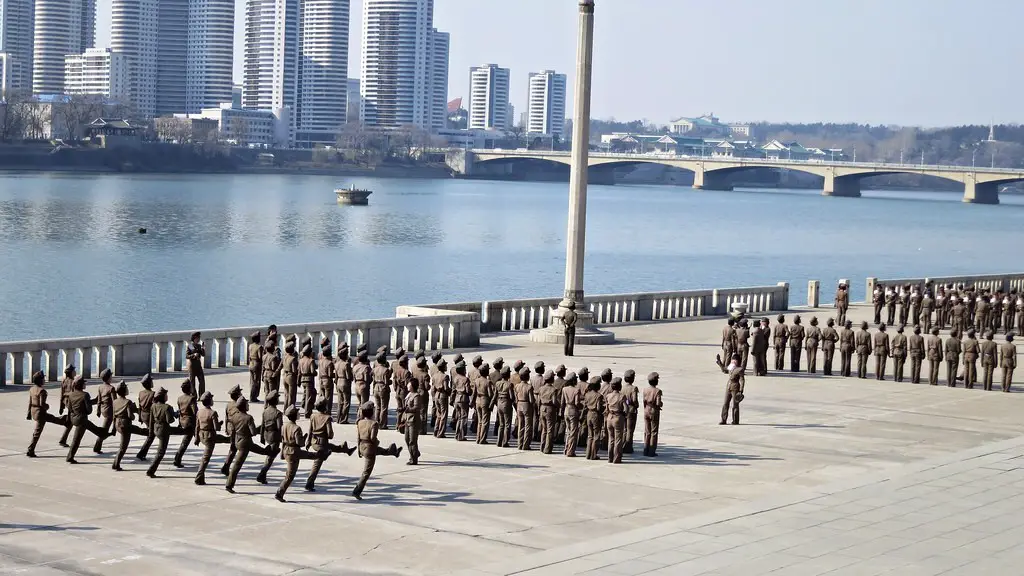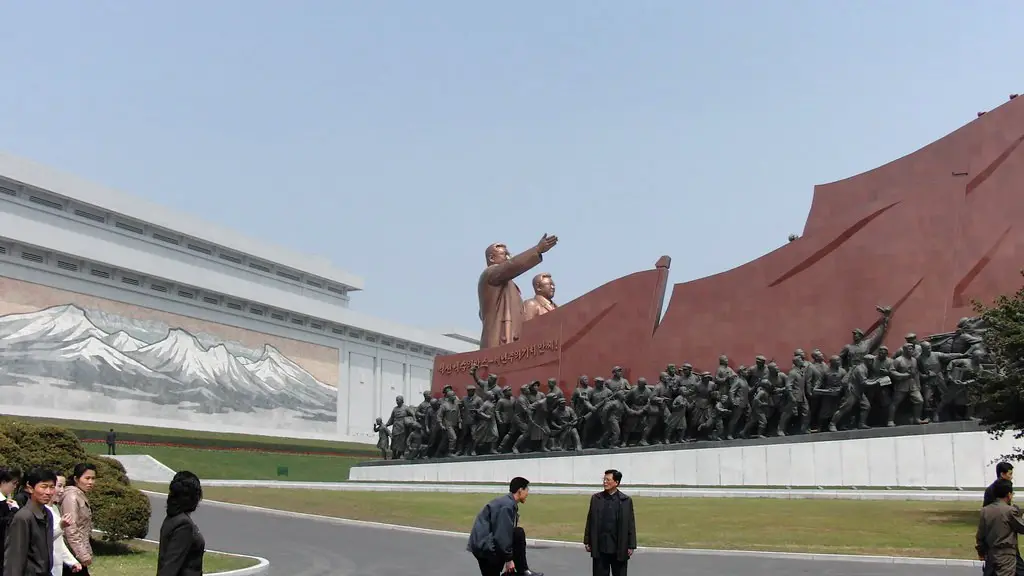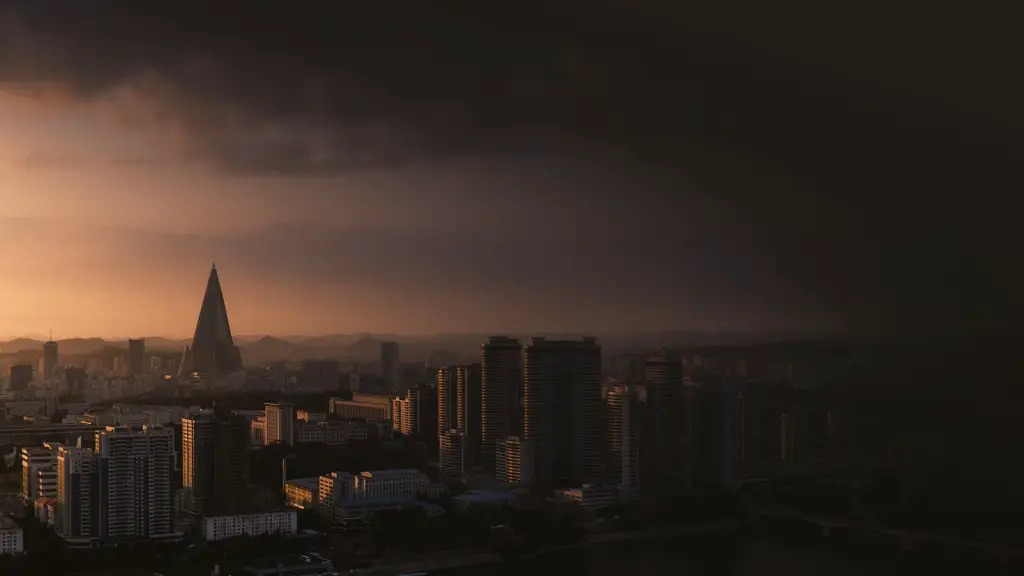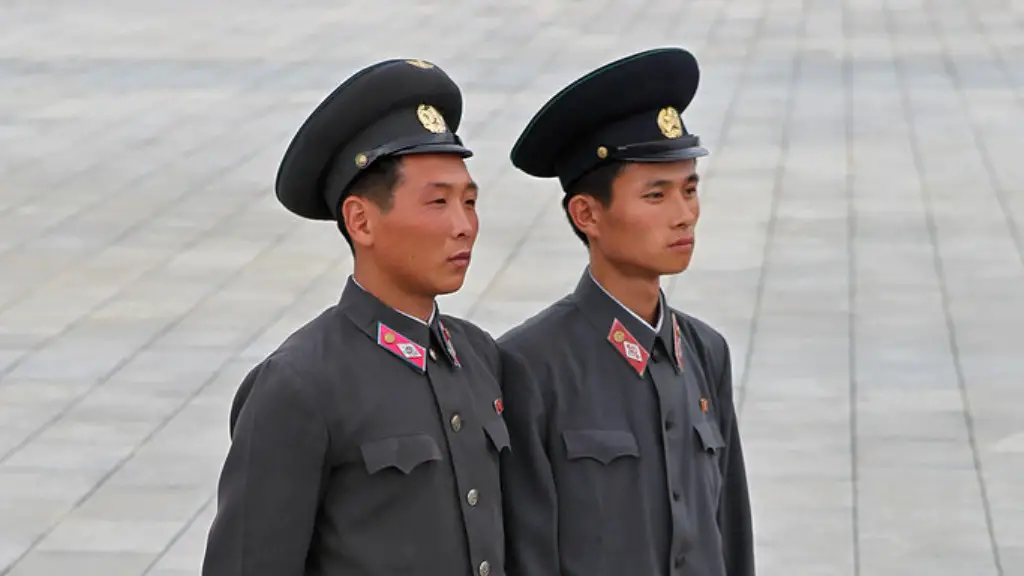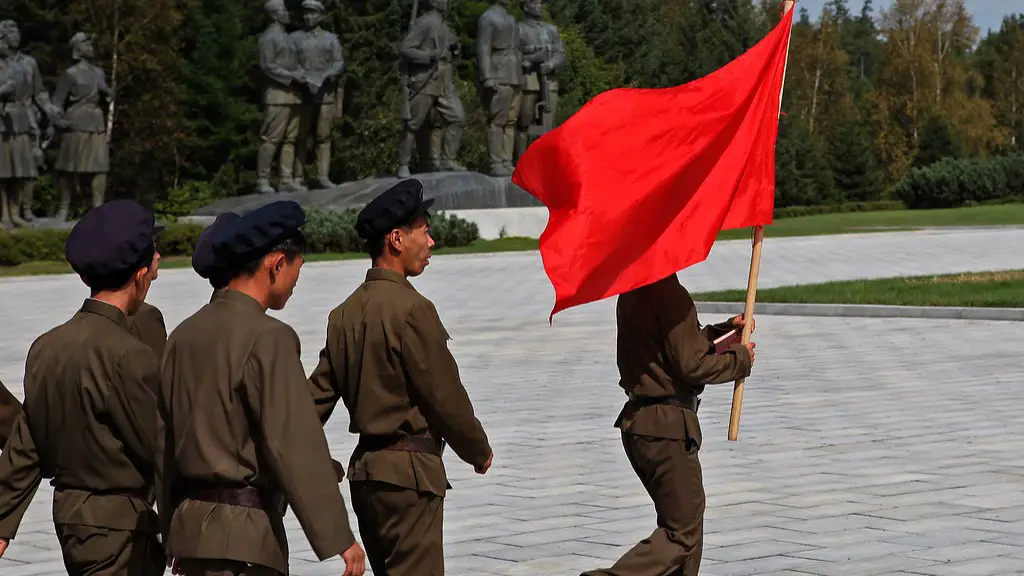North Korea has one of the most isolated societies on the planet and is an official enemy of the United States of America, the Republic of Korea and the People’s Republic of China. It holds a deep and abiding distrust for other nations in the region, particularly those with competing ideologies. As a result, North Korea has become a highly antagonistic and suspicious state. So, which countries does North Korea hate?
In a nutshell, North Korea is not on good terms with much of the world. It has a unique worldview which is heavily influenced by its Juche ideologies, which are a combination of Marxism-Leninism, nationalism and self-reliance. This worldview is what fuels the country’s deep animosity toward nations in its own region who support divergent ideologies and those in the West who continue to criticise and condemn its government. The United States, with its strong presence in the region, is a particular target of North Korea’s vitriol.
The Republic of Korea (ROK) is arguably North Korea’s most bitter and long-standing enemy. North Korea’s strained relationship with the ROK stems from the Korean War, which North Korea still maintains was unjustly instigated by the United States. Tensions between the two countries, despite attempts at reconciliation, remain high and a state of military alertness is often maintained. In 2017, North Korea criticised the upcoming Winter Olympics as a “diplomatic olympiad of the US and South Korea”.
To the north, North Korea’s relations with the People’s Republic of China are strained and often confrontational. Despite the two countries being ideological allies, North Korea refuses to accept China’s support of the United Nations Security Council’s resolutions against it and the country instead prefers to rail against its “hostile neighbour”. Recent years have seen some thawing of tensions, but North Korea still views China with suspicion.
North Korea is also wary of Japanese relations and recurrently threatens to reduce Japan to “ashes”. This attitude is as a result of Japan’s colonization of the peninsula, genocide and human rights violations that occurred during and after the occupation. North Korea has conducted many long-range missile tests whose targets, it claims, were intended to disrupt the US-Japanese alliance – an alliance that the North views as a threat to its sovereignty.
Finally, North Korea is locked in a decades-long standoff with the United States and its allies. US sanctions against North Korea, which the US and its allies promote as an effort to contain the country’s pursuit of nuclear weapons and ballistic missiles, are seen by North Korea as an infringement of its sovereignty. North Korea has long been adamant that the US is engaging in hostile policies against the Kim Jong-un regime.
Isolationism and Military Threats
North Korea’s overarching distrust for the international community and its insistence on isolationism is well known. Having spent 70 years declaring its own political and economic autonomy and building an ultra-nationalist society, North Korea is wary of the influence of other external powers. North Korea regards the United Nation’s criticism of its human rights record as a direct challenge to its authority and has disregarded the warnings issued against its pursuit of nuclear weapons.
To demonstrate its perceived power, North Korea has made a number of military threats over the years. It has warned of “all out war” with countries who are hostile to its interests and has made media statements that mention in explicit terms the possible use of nuclear weapons. This was seen in the aftermath of the 2018 US-ROK joint military drills when North Korea threatened to launch a nuclear strike on areas of its own country, should the US take any military action.
North Korea has also proven its willingness to cause regional instability by engaging in international terrorism. It is widely thought to be behind the sinking of the ROK’s Cheonan warship in 2010 and the bombardment of Yeonpyeong Island in the Yellow Sea in the same year. North Korea has repeatedly refused to apologize for these incidents, and the ROK continues to maintain a defensive position in the face of potential North Korean provocations.
North Korean Diplomacy
In recent years, North Korea has undergone much political and diplomatic change. For example, in 2018, a historic summit was held in Singapore between US President Donald Trump and North Korean leader Kim Jong-un. North Korea seems to be slowly opening its doors to diplomacy, despite long standing tensions with the international community.
Despite the country’s continued reluctance to accept international critique of its internal affairs, the country has made overtures and attempted to engage in diplomatic discourse with the world. In 2019, North Korea sent an official delegation to the United Nations General Assembly and continued to participate in dialogues with the United States and South Korea. Kim Jong-un has made repeated statements of his will to implement denuclearization and open relations with the United States, although little progress has been made towards these goals.
Kim Jong-un has also made several visits to China in recent years, and President Xi Jinping has made it clear that he will do anything in his power to protect China’s partnership with North Korea. The visits have resulted in a close alliance between the two countries and a perceived strengthening of the ties between them.
North Korea and the United Nations
The United Nations has been quite vocal in its criticism of North Korea over the years, pressuring the country to adopt international norms and cease its pursuit of weapons of mass destruction. North Korea has responded by denouncing the United Nations and its resolutions, accusing them of interference in its domestic affairs.
The United Nations has also employed sanctions against North Korea with the hopes of applying economic pressure on the country to comply with international agreements. The Security Council has adopted several sanctions since 2006, though implementation has proven difficult due to North Korea’s use of sanctions evasion techniques.
The United Nations has sought out the assistance of human rights experts and investigative panels in order to collate evidence of North Korean human rights violations. The UN has collected damning evidence of possible crimes such as repressing political dissent and forcibly conscripting children. In 2014, a UN Commission of Inquiry (COI) was established to investigate North Korea for potential human rights violations, which it detailed in its final report released in 2014.
To this day, the United Nations has maintained a strict stance against North Korea while making attempts to engage them in meaningful dialogue. Such dialogue, it is hoped, will lead to a better understanding of North Korea’s policies, its abhorrent abuses of human rights and its pursuit of nuclear weapons.
North Korea and Russia
Russia and North Korea’s relationship has been complex over the years, with both sides engaging in various acts of cooperation. Russia maintains a friendly stance towards North Korea and adopted a resolution during the UN General Assembly in 2018 to protect North Korea from any potential military actions.
Despite the longstanding anger North Korea holds for the West, relations between Russia and North Korea have been increasingly warm. North Korea and Russia have been engaged in a number of joint projects, such as increasing the security of North Korea’s coastline and building a power plant near the Russian border. The two countries have also been engaging in joint military exercises. North Korea even sent a large delegation to attend the celebrations for Putin’s reelection in 2018.
Despite North Korea’s continued hostility towards its neighbors, Russia has been keen to engage in diplomatic relations in the hope of furthering its own interests in the region. Russia’s stance may signal a fundamental shift in North Korean foreign policy, and even a possible path to diplomacy and peace.
North Korea and South Korea
The relationship between North Korea and South Korea has waxed and waned over the years, but since the end of the Korean War, tensions have remained high. North Korea continues to harshly criticise South Korea’s government and has accused it of attempting to destabilise the country. In response, South Korea maintains a robust defensive posture in the face of potential North Korean provocations.
Nevertheless, in 2018, North and South Korea entered into a formal agreement known as the Panmunjom Declaration which holds the potential for a host of cooperative activities. Specifically, both countries agreed to end military hostilities and seek the goal of a complete denuclearisation of the Korean Peninsula.
Since then, North and South Korean officials have met several times in an attempt to continue mending relations and has resulted in a number of steps towards a more cooperative and peaceful relationship between the two states. This includes high-level meetings and joint projects such as the opening of a joint liaison office and the dismantling of some military installations near the border.
North Korea and the United States
US-North Korea relations remain strained and the two countries maintain a respective hostile stance towards each other. Criticisms of North Korea’s human rights record and the development of weapons of mass destruction remain major sticking points, with the United States making concerted efforts to contain North Korea’s nuclear ambitions.
In 2018, US President Donald Trump held a historic summit with North Korean leader Kim Jong-un. While the meeting was seen as a step in the right direction, it has yet to result in any concrete steps towards a lasting peace. The subsequent meetings between the two leaders have failed to meet expectations, and both countries have remained unwilling to compromise on key points.
North Korea continues to express its disdain for US policies and often challenges their authority. Recent years have seen a number of alarming threats issued by North Korea, with some of the language becoming increasingly bombastic. This has caused much concern among the international community, with many calling for the US to soften its stance and make an effort to engage in meaningful dialogue with the North.
